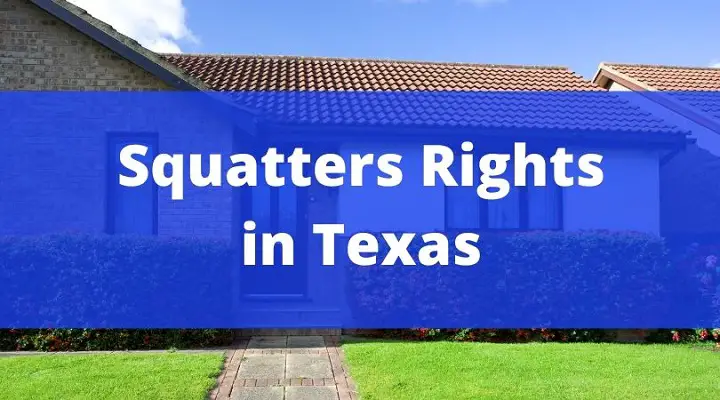What are squatters’ rights in Iowa?
If you are wondering what are squatters’ rights in Iowa, it is essential to understand the rules that govern them. Firstly, it is important to know that a squatter is someone who occupies a property without legal permission. Secondly, squatters’ rights in Iowa are only applicable if the property is abandoned or unused. Additionally, the squatter must have lived on the property for a certain amount of time, usually ten years, to claim ownership. Furthermore, it is crucial to understand that violating the property owner’s rights can lead to legal consequences. Therefore, if you’re considering squatting in Iowa, it’s important to do your research and understand the ramifications of your actions.
What is the squatting/squatter?
Squatting, a term that is commonly used to describe the act of occupying an abandoned or unused property, has been gaining popularity in recent years. Firstly, this is because of the rising costs of rent and housing, which has made it challenging for people to find affordable housing. Secondly, squatters believe in the idea of communal living, where they can share resources and live in a community that is not driven by profit. For example, a squatter might move into an abandoned warehouse and transform it into a communal living space. However, it’s essential to note that squatting is not legal in most cases and can lead to legal consequences. Therefore, the squatter must be prepared to face the risks associated with their lifestyle choice.
What is Adverse posession in Iowa?
Adverse possession in Iowa occurs when someone claims ownership of another person’s property through occupation and use for a certain period of time. Initially, the possession must be hostile, meaning without the owner’s permission. Additionally, the occupant must possess the property openly and continuously for at least 10 years. Moreover, the possession must be actual and exclusive, meaning that the occupant must act as the legal owner and not share possession with others. Once these conditions have been met, the occupant can file an action for title to the property, which can result in legal ownership transfer. However, adverse possession cases can be complex and often require the assistance of an attorney.
Is it legal to squat in Iowa?
In regards to squatting in Iowa, there are several factors to consider. Firstly, it’s important to understand what squatting actually entails. Squatting refers to occupying and living in a property without the owner’s permission. This is illegal in most cases, but in Iowa, there are certain situations where it could be considered legal. For instance, if the property has been abandoned or the owner has not maintained it, it may be possible to claim ownership through adverse possession. However, this process can be complicated, and it’s best to seek legal advice before attempting it. Overall, while squatting is generally illegal in Iowa, there are certain situations where it may be possible to claim ownership of a property.
Can police remove squatters in Iowa?
If you’re wondering whether the police can remove squatters in Iowa, the answer is yes. First, it’s important to understand that squatting is illegal, and Iowa law allows law enforcement officials to remove squatters from private property. However, this process must be carried out in accordance with the law, and there are certain steps that must be followed. For example, the property owner must provide notice to the squatters to vacate the premises. If the squatters refuse to move out, the owner can then seek a court order that allows law enforcement officials to remove them. Ultimately, the police have the authority to remove squatters in Iowa, but the process must be followed correctly and lawfully.
How to evict squatter in Iowa?
If you find yourself in the unfortunate circumstance of having a squatter in Iowa, it’s important to know how to proceed legally. First of all, try to communicate with the squatter and encourage them to leave peacefully. If that doesn’t work, serve them with an eviction notice, giving them a set amount of days to vacate the premises. If they still haven’t left by that time, you’ll need to file a lawsuit for unlawful detainer. It’s crucial to follow the proper legal channels to ensure that the eviction process is lawful and to avoid any potential legal issues. In summary, communication, eviction notice, and lawsuit are the steps to follow to evict a squatter in Iowa.
FAQ
Q: What are squatters’ rights in Iowa?
A: Squatters’ rights are legal rights that protect individuals who are living on a property they do not own. In Iowa, squatters’ rights are not recognized.
Q: Can a squatter claim ownership of a property in Iowa?
A: No, a squatter cannot claim ownership of a property in Iowa simply by living on it for a certain amount of time.
Q: Can a property owner file an eviction notice against a squatter in Iowa?
A: Yes, a property owner can file an eviction notice against a squatter in Iowa if they are living on the property without the owner’s permission.
Q: How long does it take to evict a squatter in Iowa?
A: The time it takes to evict a squatter in Iowa depends on the specific circumstances of the case. It can take anywhere from a few weeks to several months.
Q: Can a squatter be charged with trespassing in Iowa?
A: Yes, a squatter can be charged with trespassing in Iowa if they are living on a property without the owner’s permission.
Q: Can a squatter be held liable for damages to the property?
A: Yes, a squatter can be held liable for damages to the property in Iowa.
Q: How can a property owner prevent squatters from taking over their property?
A: A property owner can prevent squatters from taking over their property in Iowa by securing the property and taking legal action against any individuals living on the property without permission.
Q: Can a property owner bring criminal charges against a squatter in Iowa?
A: Yes, a property owner can bring criminal charges against a squatter in Iowa if they have committed any criminal acts while living on the property without permission.
Also Reading
Grand Rapids pros and cons of living
Dothan average rent
Top neighborhoods in New Haven for families




